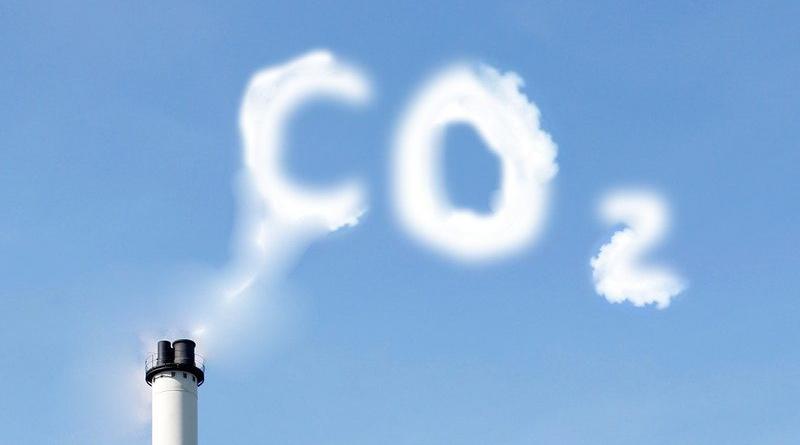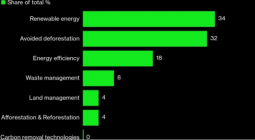Climate neutrality: only as strong as the weakest definition

Reducing carbon emissions has been defined as a central goal in the fight to tackle the effects of climate change. But “carbon neutral” claims that rely on carbon offsetting – a different practice – are misleading and can hinder actual progress, writes Elisa Martellucci.
Elisa Martellucci is the Programme Manager at Environmental Coalition for Standards (ECOS).
There is no such thing as a climate-neutral company or product. Yet, claims of “net zero” or “carbon neutral” have become ubiquitous, with marketing teams jumping to attract increasingly climate-conscious consumers with green messaging. However, such claims are usually not linked to reduced emissions. They rely on carbon offsetting – a misleading practice that can block real progress. Regulators must take control of this field to tackle the climate emergency.
Carbon neutrality claims create the false impression that production and consumption patterns of companies and consumers do not need to change – but change is essential to meet urgent climate goals and protect our planet from dangerous warming. The first – and most significant – action companies must take to limit their impact on the climate is to reduce their emissions. This simply cannot be avoided. Environmental claims based on carbon offsetting are a trick that can hide climate inaction.
With legislation on carbon neutrality claims in its infancy, companies do not yet have a clear, mandatory pathway to net zero. Until this exists, voluntary guidelines and standards guide climate action. Unfortunately, there is more than one set of such guidelines, and they sometimes contradict each other, muddying the waters of an already confusing landscape.
We have reached a pivotal moment in this conversation. Developments at global and EU levels could determine the future of carbon neutrality claims. All initiatives must focus on the guiding principle of reducing emissions instead of offsetting them. Not doing so will risk opening Pandora’s box of misleading claims.
Emissions must be reduced, not offset
As you read this, the International Organisation for Standardisation (ISO) is developing a Carbon Neutrality Standard (ISO 14068), due to be published at the end of 2023. Negotiations to define what the standard will cover have taken a worrying turn, with the draft currently allowing for the use of carbon offsetting as a strategy for companies to achieve carbon neutrality – effectively discouraging real action on reducing emissions.
This would go against ISO’s own Net Zero Guidelines, which do not allow companies to make a net zero claim without first reducing greenhouse gas emissions until only residual emissions remain – and these should be counterbalanced by removals. This is a sensible approach. But having two competing standards on the market – one supporting the empty promise of carbon offsetting and the other more ambitious and stringent – will only complicate an already fraught field.
Standards are not mandatory. Companies can follow them voluntarily. However, they send a strong signal that certain practices are acceptable across global markets. ISO must realign the Carbon Neutrality Standard with its sound advice, or a cascade of greenwashing claims will be unleashed.
European Parliament gets the message
In different meeting rooms across Brussels, similar conversations are also taking place. EU legislation on carbon neutrality claims is in the making, with negotiations between EU institutions on the proposal for a Directive on empowering consumers for the green transition due to begin imminently.
The European Parliament’s negotiating position, adopted in May, calls for a ban on carbon offsetting claims not “supported by clear, objective, quantified, science-based, and verifiable commitments and targets”. It also proposes that “Claims based on carbon offsetting which suggest that a product or service has a neutral, reduced, compensated, or positive environmental impact should […] be prohibited.”
If this makes it into the final text, it will go a long way towards preventing greenwashing that uses offsetting. Environmental groups hope to see the Parliament’s position supported by the Council when negotiations begin.
The tide is turning
Companies should not be permitted to make unsubstantiated environmental claims as they please, and consumers should be given the tools to make adequately informed decisions about the products and services they buy. This cannot happen until climate neutrality claims are properly regulated, and widespread carbon offsetting becomes a thing of the past.
Carbon neutrality offsetting claims on products and services have already been prohibited by various advertising regulators in countries such as the Netherlands, the UK, and New Zealand, with offending companies taken to court and sometimes forced to change their marketing claims.
The tide is turning on carbon neutrality, with consumers and EU policymakers beginning to take note. The regulatory framework we build to respond must match the urgency of the climate crisis by reducing emissions. Let’s not let this opportunity go to waste.






